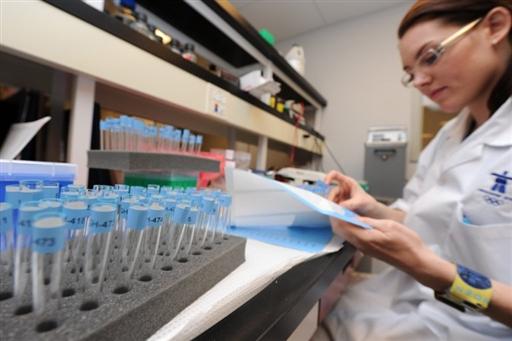New test for human growth hormone nabs first athlete
British rugby league player's positive a landmark in anti-doping
The latest race content, interviews, features, reviews and expert buying guides, direct to your inbox!
You are now subscribed
Your newsletter sign-up was successful


Almost 12 years after Willy Voet was caught with a car full of performance enhancing drugs at the Belgian border heading to the Tour de France, anti-doping authorities have successfully banned an athlete for one of the drugs found in Voet's possession: human growth hormone (hGH).
In a landmark case, UK Anti-Doping announced that rugby league player Terry Newton has accepted a two-year suspension after testing positive for hGH in an out-of-competition control carried out on November 24, 2009 . This is the first time an athlete has been sanctioned for hGH use.
HGH has long been used by athletes to help in recovery and to aide in muscle growth. It has been on the World anti-doping Agency's (WADA) list of banned substances but tests for the hormone have proven difficult because it is produced by the human body naturally, and the drug does not remain in the system for long.
"This is an exciting major breakthrough that has been the result of many years of careful research with WADA," said King's College London Drug Control Centre Director, Professor David Cowan.
"The detection of substances that are virtually identical to our natural hormones has always represented a challenge. This shows how science has closed an important gap and further enhances our ability to deter the cheating athlete to ensure the integrity of sport and promote healthy competition."
The WADA General Director, David Howman, had strong words of warning to athletes, reminding them that rules now allow for samples to be stored for up to eight years and re-analysed with new tests as they are developed.
"This first completed case involving an analytical finding for human growth hormone (hGH) is a positive step in the global fight against doping in sport," said Howman.
The latest race content, interviews, features, reviews and expert buying guides, direct to your inbox!
"It sends a strong message to those athletes who take the risk to misuse hGH that we will ultimately catch them. WADA and the anti-doping community have committed significant resources to the development of detection means for hGH.
"I suggest to cheaters to keep in mind that the World Anti-Doping Code makes it possible to open a disciplinary proceeding within eight years from the date an anti-doping rule violation occurred, and that stored samples can be re-analyzed."
While the possibility of sanction may prove to be a powerful deterrent for the use of hGH, recent scientific studies have also suggested the expensive drug is worthless in increasing athletic performance.

